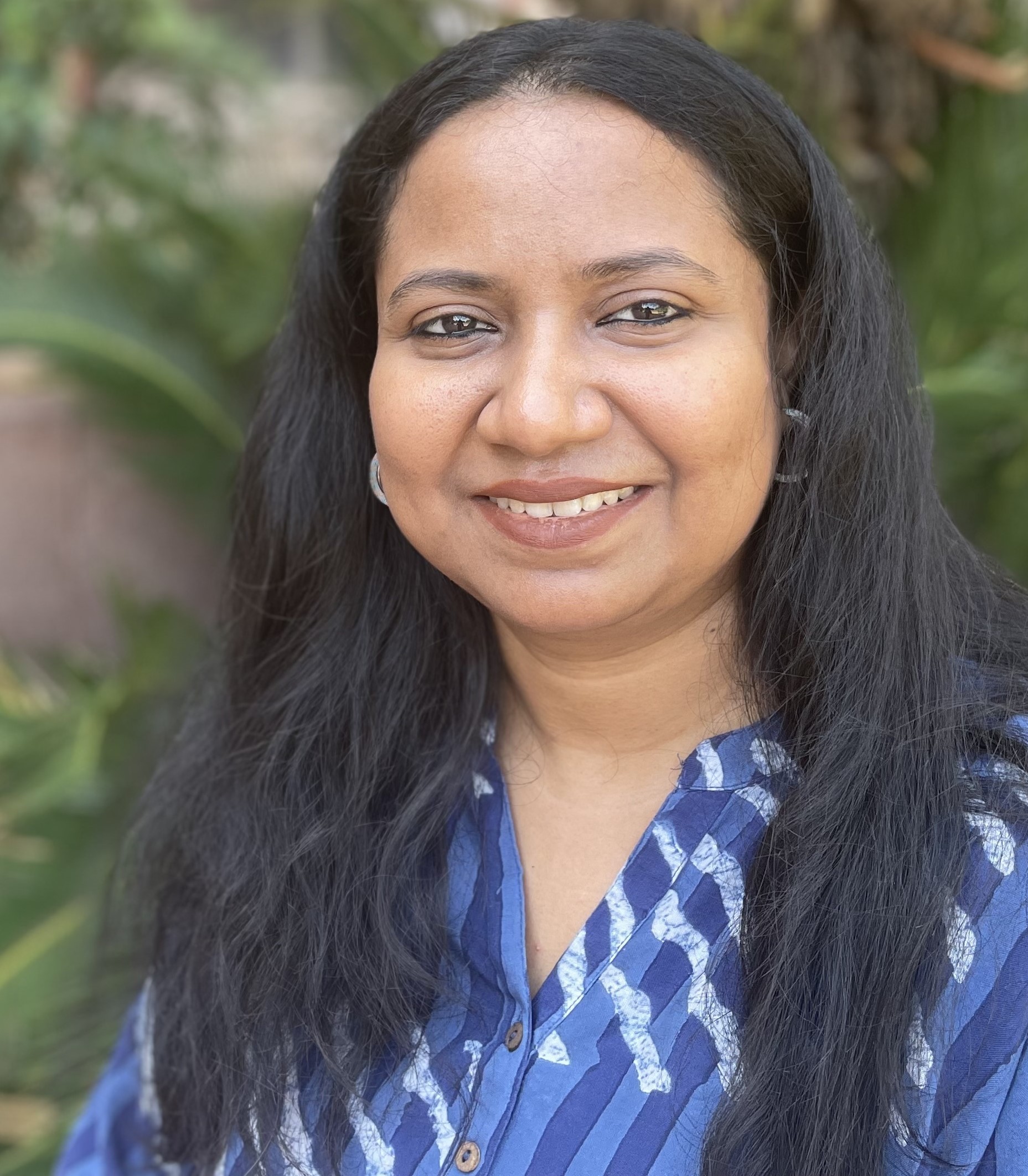 Dr. Swati Nayak
Dr. Swati Nayak
INDIA
Dr. Swati Nayak, Scientist and South Asia Lead for Seed System and Product Management at the International Rice Research Institute (IRRI), has been named the 2023 recipient of the Norman E. Borlaug Award for Field Research and Application, Endowed by the Rockefeller Foundation. She is recognized for her innovative approach to engaging smallholder farmers in demand-driven rice seed systems, from testing and deployment to equitable access and adoption of climate-resilient and nutritious rice varieties.
From the beginning of her career, Nayak has dedicated herself to closing the gap between scientific knowledge and its practical applications for farmers. Upon graduating in 2010 with her Masters from the Institute of Rural Management Anand, she started working as the only woman administrator at the Integrated Tribal Development Agency in the remote forest region of Andhra Pradesh, India. Though she could have chosen an easier path, she was determined to work hands-on in the field, immersed in farming communities.
Her grassroots experience paved the way for her to be appointed to head the first-ever dedicated Indian government initiative for women farmers. She was a central member of the team which crafted a comprehensive blueprint for the program, collaborating with more than 10 Indian states to establish a national program from scratch. Her work laid the foundation for the still flourishing program to benefit four million women farmers to date.
Nayak joined IRRI in 2013, where she has provided pivotal leadership in numerous global flagship programs on rice and rice-based food systems. She is the current lead for cereal seed systems under the key initiative SeedEqual of CGIAR, a worldwide research partnership focused on agricultural food systems.
With unwavering perseverance, she spearheaded groundbreaking research initiatives, led multidisciplinary teams, and forged collaborations with local communities, academia, students and stakeholders. Together with her team, she created innovative, participatory solutions to the daunting challenge of feeding and nourishing a rapidly growing global population amid climate change, through the rapid scaling up of improved rice varieties, seed systems innovations, and climate-smart technologies around the world.
In that effort, Nayak has organized more than 10,000 extensive on-farm trials for more than 500 rice varieties, working with thousands of smallholder farmers across diverse ecosystems in different countries across Asia and Africa. She was central to the massive effort toward the successful dissemination and adoption of more than 20 promising climate-resilient and biofortified rice varieties. This process has empowered farmers, women and men, to maximize their yields, minimize their environmental footprint, and secure their economic future.
Nayak has heavily involved women in her work, particularly in evaluating and collecting critical feedback on new rice varieties. In the process, she trained numerous women groups in South Asia in varietal selection, seed production, marketing, and business development. She has contributed to the establishment of numerous seed production businesses led by women and smallholder farmers.
In 2021, through Nayak’s efforts, women-led seed enterprises were able to produce, distribute, and sell approximately 8.5 metric tons of quality seeds. More than 40% of the participants in her programs, whether on-farm testing of varieties, demonstration plots, participatory rice variety evaluation, or seed production, have been women farmers. Nayak’s research results not only in productivity increases, but also increases in income, decision-making authority, and overall empowerment of women.
Resilience to climate change is also a central part of Nayak’s advocacy for sustainable agriculture. Many climate-resilient rice varieties have been successfully deployed in India, Bangladesh, and Nepal through her diligent strategy, partnerships, and unique positioning models. According to projections, by 2022, 1 million hectares would be planted in India with flood-, drought-, and salt-tolerant rice varieties.
In one case, Nayak and her team formulated a strategy for introducing the drought-tolerant rice variety Shahabhagi Dhan in Odisha, India. The variety soon became an integral element of every farm family's diet and crop rotation. Years later, Sahabhagi Dhan remains one of the most in-demand products in Odisha and the rest of India. Nayak is fondly referred to by the local communities with whom she has worked as “Bihana Didi,” meaning “Seed Lady.”
Furthermore, she has played a catalytic role in nurturing regional collaboration through the "Seed Without Borders" policy agreement, which speeds the dissemination of modern rice varieties across South and Southeast Asia. Her instrumental involvement in introducing promising novel rice varieties from Bangladesh to India and beyond has transcended geographical boundaries, ensuring that research innovations swiftly reach the hands of farmers across nationalities.
In an award that celebrates field science, Nayak is fittingly honored as a champion of inclusive agricultural extension and technology transfer, critical for equitably bridging the gap between scientific advancements and tangible benefits on farmers' fields. She promotes rural innovation models that emphasize sustainable agricultural technologies and enterprise development. Her adept leadership in validating and scaling participatory field research and extension models has garnered broad acclaim and has been widely replicated by national institutions. She is a pioneer in extension and field research, as well as an inspiration to the many people, especially women, following her lead.
_________
Nayak received a Ph.D. in Competitive Intelligence & Strategic Management for Agricultural Extension Management Strategy at Amity University (2017-2022), a Master in Rural Management at the Institute of Rural Management Anand (2008-2010) and a Bachelor of Science in Agriculture at Acharya NG Ranga Agriculture University (2003-2007).


